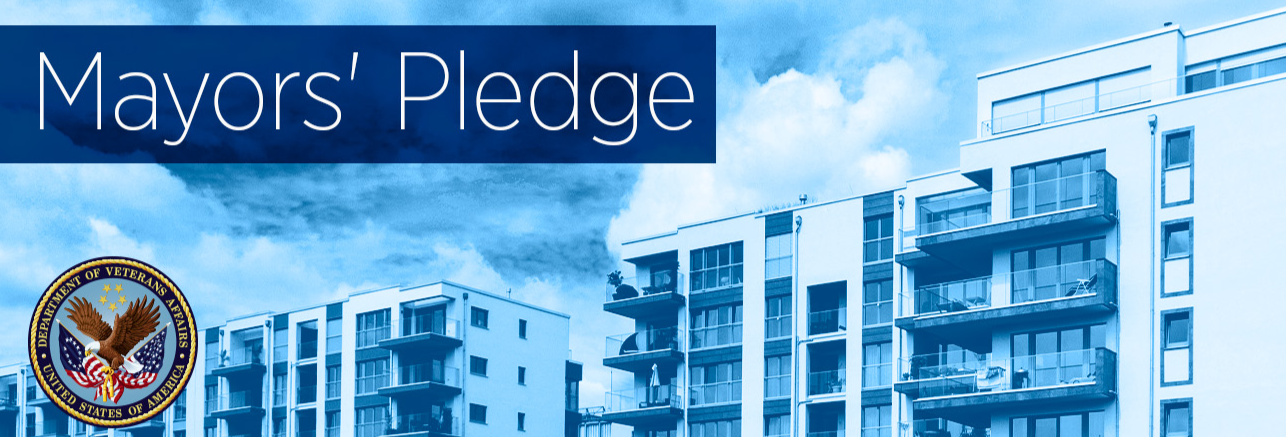Make the Pledge to House Homeless Veterans

This initiative is on hold until further notice.
If you have questions, contact mayorpledge@va.gov.
If you are a Veteran who is homeless or at imminent risk of homelessness, we strongly encourage you to call the National Call Center for Homeless Veterans at (877) 4AID-VET (877-424-3838) or chat online with a responder for assistance. Note: This phone number is an emergency hotline for homeless Veterans and cannot provide additional information about becoming a VA landlord.
















